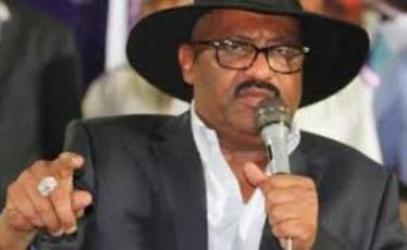UK sanctions Sudanese businessman over corruption in South Sudan
April 26, 2021 (LONDON) – The United Kingdom has sanctioned Sudanese businessman, Ashraf Seed Ahmed Hussein Ali, widely known as Al Cardinal, for his involvement in the misappropriation of significant amounts of state assets in war-torn South Sudan.

According to The Sentry, an investigative arm of Enough Project, Al Cardinal has mastered the art of doing business in a state riddled with corruption.
“Since 2006, this Sudanese businessman widely known as Al-Cardinal has exploited opaque procurement processes, weak oversight institutions and cozy relationships with Juba’s most powerful politicians to line his own pockets,” it said in a 2019 report.
It added, “He has been embroiled in major procurement scandals, set up private businesses with ruthless military generals, imported military equipment during a bloody civil war and even scored lucrative contracts linked to the implementation of the peace deal”.
The Sudanese businessman is also accused of establishing a global network of companies and business partners, and has reportedly purchased expensive real estate abroad, from London to Dubai.
“Sanctioning Al-Cardinal on the same day the UK issued its Global Anti-Corruption Sanctions regime sends a powerful signal to those who act with impunity that they will face consequences when they hold real estate and corporate interests in the UK, and that their ill-gotten gains are not welcome. This is a huge step for peace and accountability in South Sudan,” Brian Adeba, deputy director of policy at The Sentry said on Monday.
Britain also imposed asset freezes and travel bans against 21 other individuals under the new Global Anti-Corruption sanctions regime.
Dominic Raab, the UK Foreign Secretary said individuals involved in some of the world’s most serious cases of corruption will no longer be able to channel their money through UK banks or enter the country.
This new regime will allow the UK to combat serious corruption, in particular bribery and misappropriation, Raab said in a statement.
He further added, “It will promote effective governance, robust democratic institutions, and the rule of law — demonstrating the country’s power as a force for good around the world”.
According to the Foreign Secretary, the individuals, who were blacklisted in Monday’s move, are involved in some of the most notorious corruption cases around the world.
“Global Britain is standing up for democracy, good governance and the rule of law. We are saying to those involved in serious corruption: we will not tolerate you or your dirty money in our country,” he said.
The UK launched a historic autonomous Global Anti-Corruption Sanctions Regulations regime on Monday. The newly enacted regulations will give Britain powers to prevent those involved in corruption from either traveling to the country or using its financial system.
(ST)
